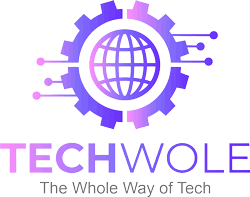Introduction:
The rapid pace of technological innovation is reshaping job markets across the globe. Emerging technologies such as artificial intelligence (AI), blockchain, virtual reality (VR), and 5G are revolutionizing industries and creating new opportunities for both job seekers and employers. In this extensive article, we will delve into the transformative impact of these emerging technologies on job markets and explore the skills and roles that are emerging as a result.
1. Artificial Intelligence (AI):
AI is leading the charge in transforming job markets by automating routine tasks, enhancing decision-making processes, and enabling intelligent systems. While there are concerns about job displacement, AI is also creating new job roles. For instance, the demand for AI engineers, data scientists, and machine learning specialists is skyrocketing. Additionally, roles that require human interaction, creativity, and critical thinking, such as AI trainers and ethical AI specialists, are emerging to ensure the responsible development and deployment of AI technologies.
2. Blockchain Technology:
Blockchain, a decentralized and secure digital ledger, is disrupting industries such as finance, supply chain management, and healthcare. This technology enables transparent and immutable record-keeping, eliminates intermediaries, and enhances security. As blockchain adoption grows, job opportunities in areas like blockchain development, smart contract programming, and blockchain consulting are on the rise. Moreover, expertise in blockchain governance, cybersecurity, and legal compliance will be crucial for organizations navigating this transformative technology.
3. Virtual Reality (VR) and Augmented Reality (AR):
VR and AR technologies are transforming various sectors, including gaming, entertainment, education, and training. These immersive technologies are revolutionizing the way we learn, collaborate, and experience content. As VR and AR applications expand, job roles such as VR/AR developers, 3D designers, UX/UI specialists, and VR/AR content creators are in high demand. Additionally, industries like real estate, tourism, and healthcare are exploring VR/AR for virtual property tours, immersive travel experiences, and medical simulations, creating new job opportunities.
4. Internet of Things (IoT):
The IoT refers to the network of interconnected devices that collect and exchange data. This technology is reshaping industries like manufacturing, logistics, and healthcare by enabling smart and interconnected systems. With the growth of IoT, job prospects for IoT architects, IoT security specialists, data analysts, and IoT solution developers are expanding. Moreover, expertise in data management, cybersecurity, and connectivity will be critical to harnessing the full potential of IoT applications.
5. 5G Technology:
The deployment of 5G networks promises lightning-fast speeds, ultra-low latency, and massive connectivity. This technology will enable advancements in autonomous vehicles, smart cities, telemedicine, and more. With 5G’s arrival, job opportunities in areas like network engineering, IoT integration, edge computing, and 5G application development will increase. Moreover, skills in data analytics, cybersecurity, and artificial intelligence will be in demand to support the capabilities and security of 5G networks.
6. Robotics and Automation:
Robots and automation are transforming industries by augmenting human capabilities, improving efficiency, and enhancing safety. While concerns exist about job displacement, robotics and automation also create new roles in robot programming, robotics engineering, and maintenance. Additionally, human skills like creativity, adaptability, and complex problem-solving remain highly valued as jobs increasingly require collaboration between humans and robots.
7. Renewable Energy and Sustainable Technologies:
The shift towards renewable energy and sustainable technologies is creating new job markets focused on clean energy generation, energy storage, and green infrastructure. Job roles such as solar and wind technicians, sustainable architects, energy consultants, and circular economy specialists are emerging. Furthermore, expertise in sustainable practices, environmental impact assessment, and clean technology integration will be crucial in the evolving job landscape.
8. Biotechnology and Genetic Engineering:
Advancements in biotechnology and genetic engineering are transforming healthcare, agriculture, and environmental conservation. Job opportunities in areas such as bioinformatics, genetic counseling, gene editing, and bioprocessing are expanding. Additionally, expertise in bioethics, regulatory compliance, and data analysis will be essential to navigate the ethical and legal considerations surrounding these technologies.
9. Quantum Computing:
Quantum computing has the potential to revolutionize fields such as cryptography, drug discovery, and optimization problems. As quantum computing matures, the demand for quantum physicists, quantum algorithm developers, and quantum security specialists is growing. Furthermore, expertise in quantum mechanics, cryptography, and algorithm design will be crucial in harnessing the power of this transformative technology.
10. Big Data and Analytics:
The exponential growth of data is driving demand for professionals skilled in big data management, data analytics, and predictive modeling. Organizations are seeking individuals who can extract valuable insights from large datasets and make data-driven decisions. Job roles such as data scientists, data engineers, and business analysts are increasingly in demand. Additionally, skills in machine learning, data visualization, and data privacy will be critical in effectively leveraging big data.
Conclusion:
Emerging technologies are reshaping job markets, presenting both opportunities and challenges for job seekers and employers alike. Artificial intelligence, blockchain, virtual reality, 5G, and other transformative technologies are creating new job roles while transforming existing ones. Adapting to these changes requires continuous learning, upskilling, and acquiring expertise in areas aligned with emerging technologies. Organizations need to foster a culture of innovation, embrace digital transformation, and provide opportunities for employees to develop the skills required in the evolving job landscape. By staying informed, proactively acquiring new skills, and embracing emerging technologies, individuals can position themselves for success in the dynamic job markets of the future.
